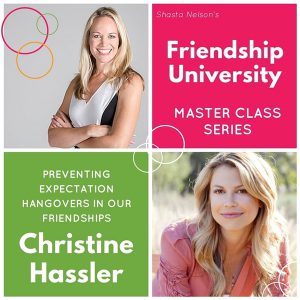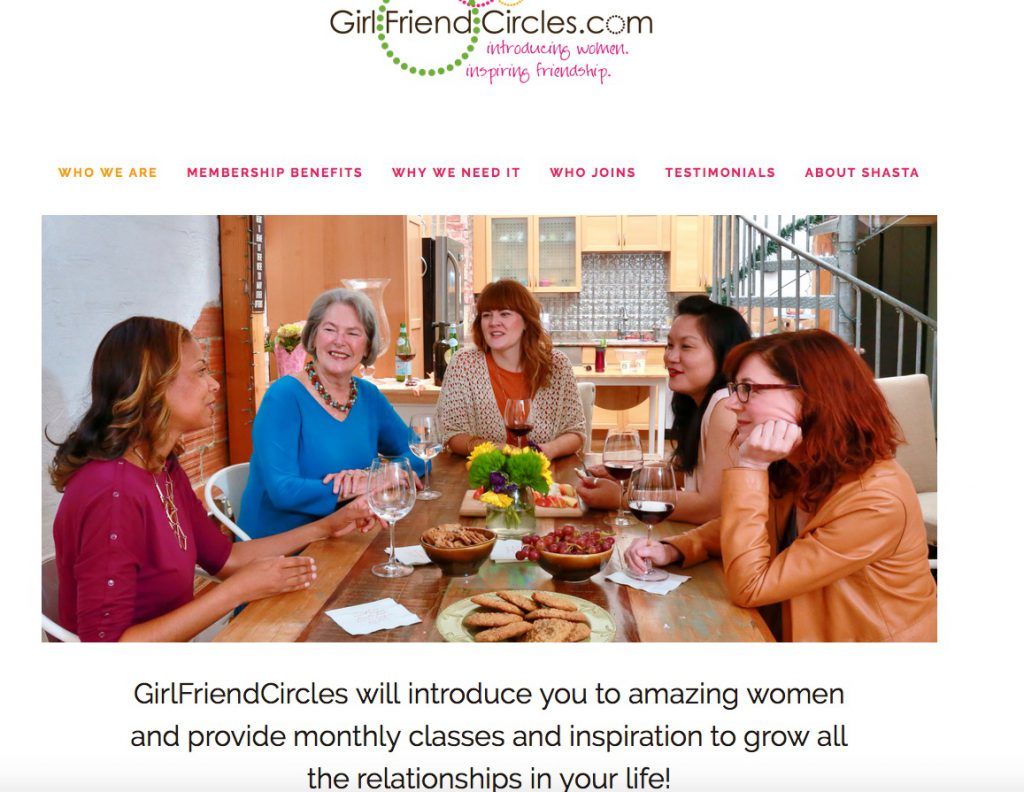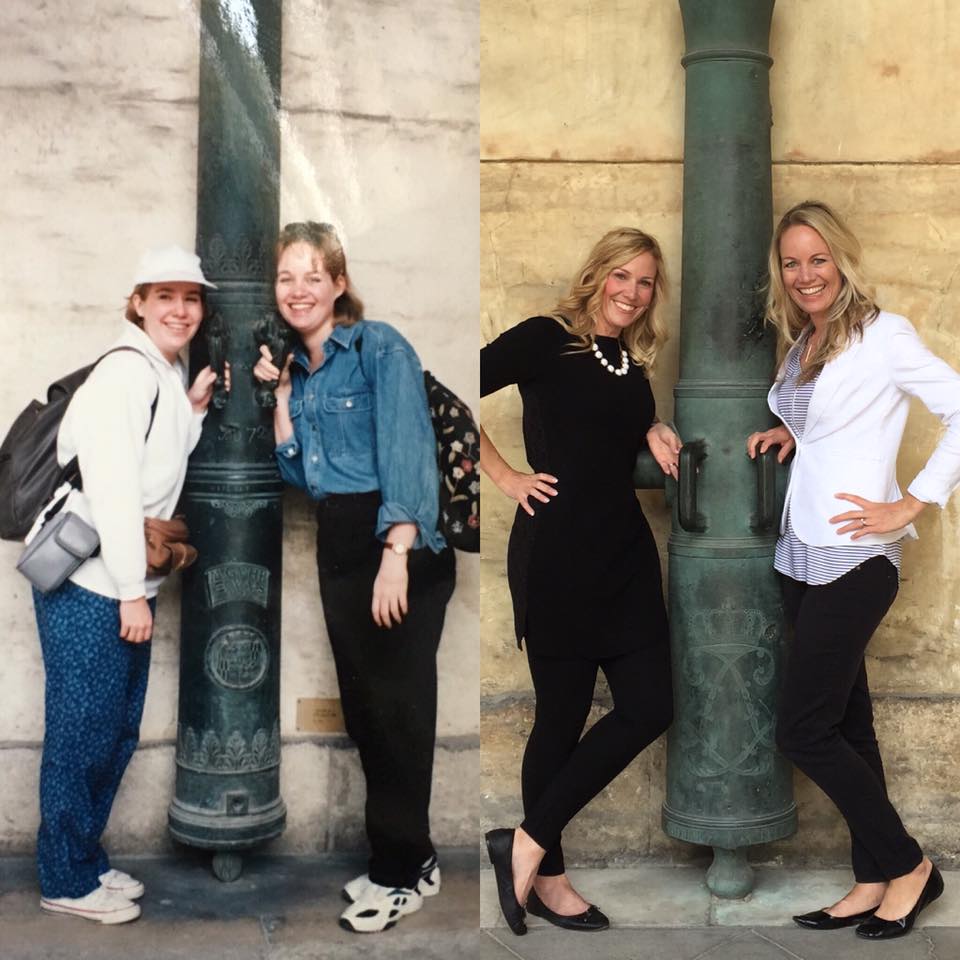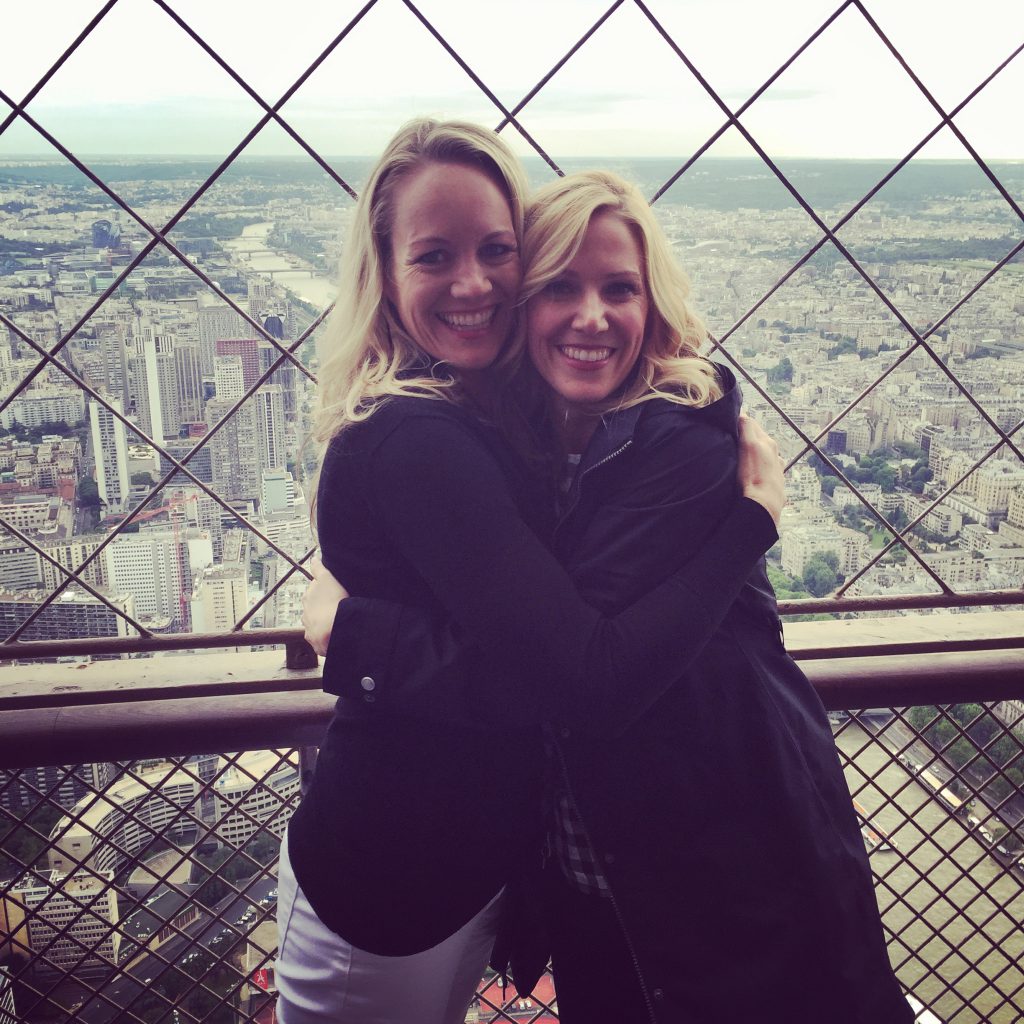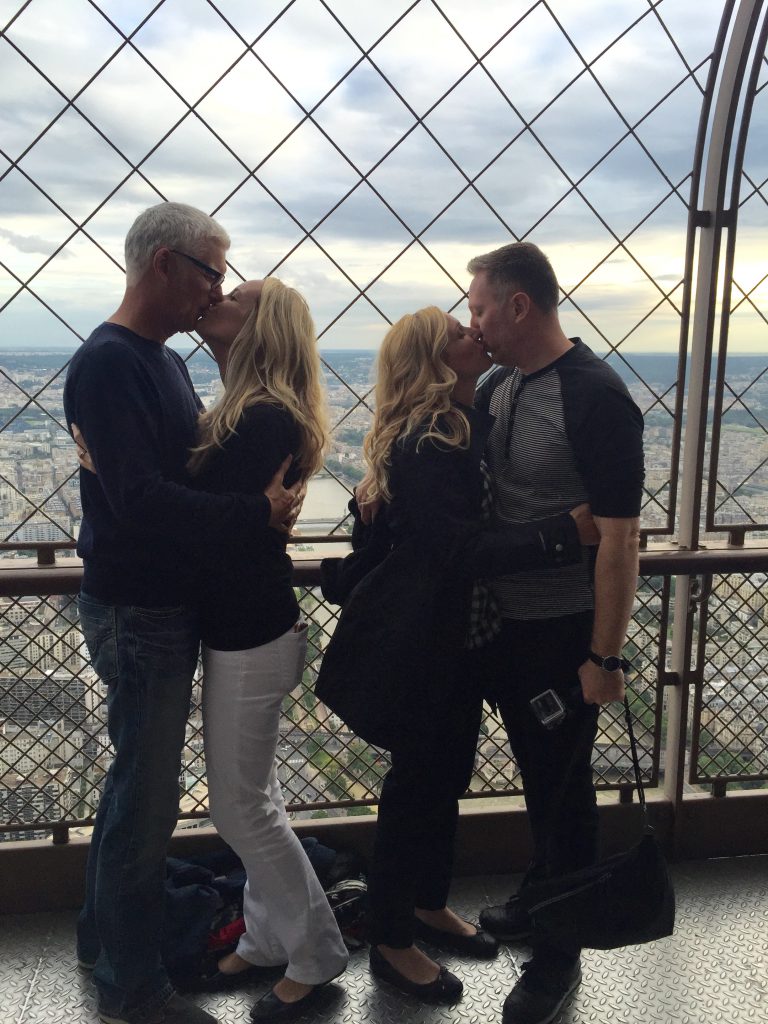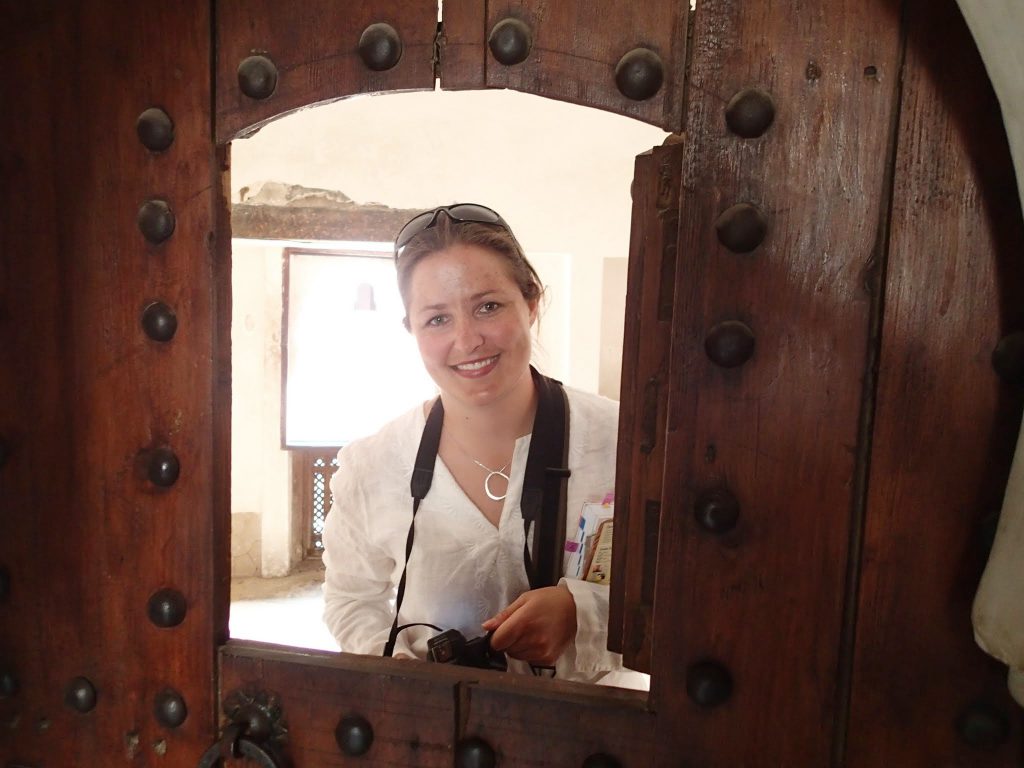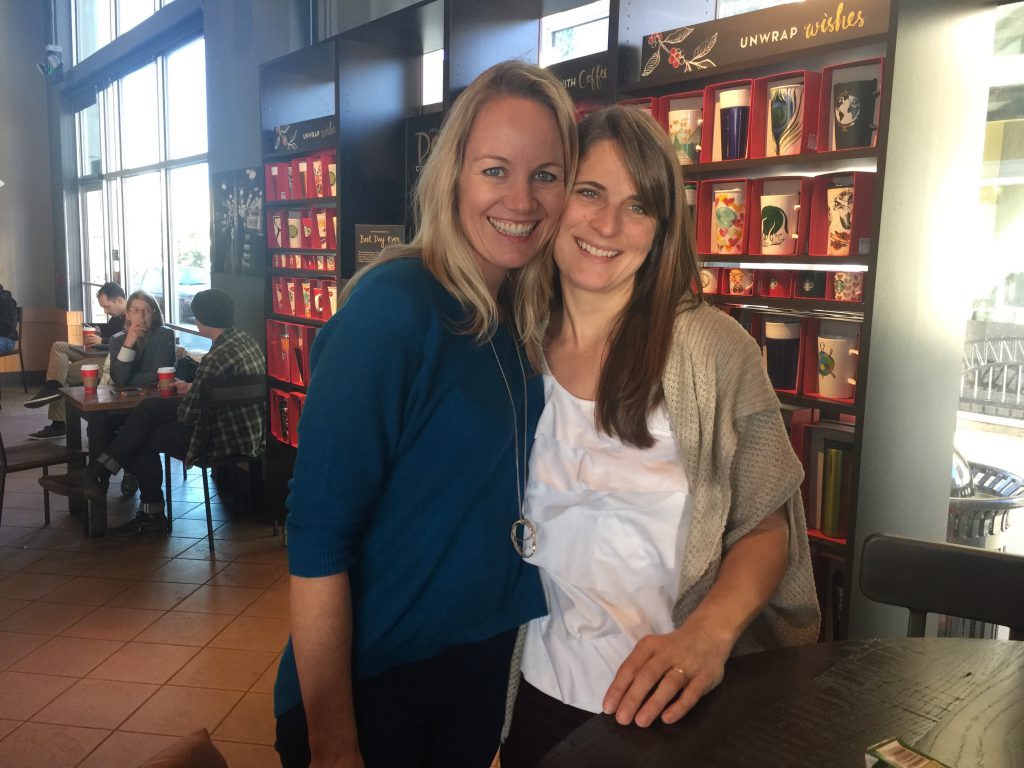When we think of vulnerability, we all too often think of sharing our insecurities, anxiety, and stories of shame. But that type of sharing is only one out of the 5 ways to be vulnerable with others. It's certainly important to deepening relationships to know we can reveal what we fear is our worst and be reminded we're still loved and accepted; but it is such a limited definition of vulnerability.
Relational vulnerability, in general, is anything that exposes more of who we are to others; and specifically, the actions we take to share life more widely and deeply with others.
Perhaps the Scariest Act of Vulnerability?
And while I teach 5 different pathways, or acts, of vulnerability in my book Frientimacy; there's one of the acts, in particular, that I think could drastically improve our friendships, our self-esteem, our contributions in the world, and our joy, if we practiced it more regularly. But not only do we not engage in it often enough with our friends, the truth is that most of us don't even know we should be!
What is this secret act of vulnerability, if it's not bringing our skeletons out from our proverbial closets?
It's the act of Shining in Front of Each Other.
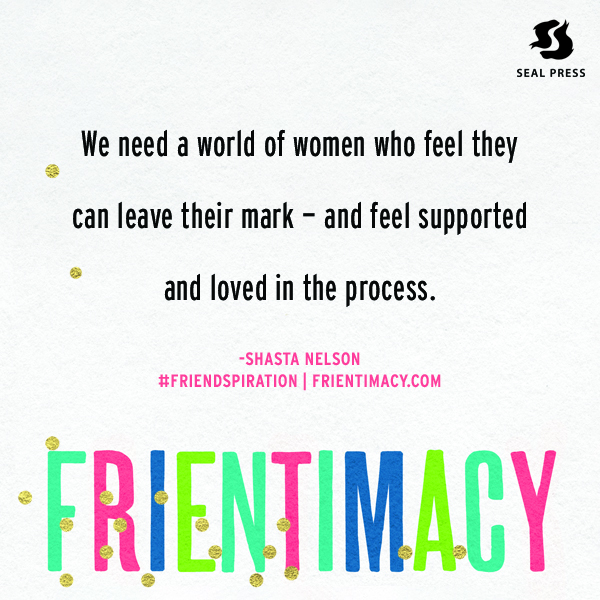
One of the most undervalued acts of vulnerability is supporting each other’s success in this world. Being willing to shine in front of our friends by sharing what is going well, why we are proud of ourselves this week, and what we do like about ourselves. It takes courage to be willing to shine fully in front of our friends, and take in their affirmation, cheers, and love.
And it takes just as much vulnerability to encourage our friends to shine in front of us! Why? Because often their shining may trigger our own feelings of insecurity or envy. It can be hard to cheer for her pay raise if we're barely paying the bills, and painful to celebrate her new boyfriend in the midst of our break-up.
But we're called to feel that vulnerability--both of sharing and cheering--and rise the occasion of being women who can shine in front of each other.
When we talk about feeling safe and loved by others we often say, we want to be accepted for "the good, the bad, and the ugly," but most of us actually feel more practiced and comfortable whining about the bad and the ugly, and not being as forthcoming with the good.
5 Ideas to Practice Shining With Our Friends
- CHERISH YOUR LIFE: While we want to be honest about the fact that some areas of life aren’t ideal, we also want to actively identify the areas that are good—and be honest about them. Practice saying, “I’m really fortunate that I don’t struggle with X, but I’m sensitive to those who do. And while I certainly struggle in other life areas, in this one I want to appreciate what I do have.”
- AFFIRM HER LIFE: Whenever you think of it, affirm everything you can think of about your friend. The number one value of friendship is to boost positivity by communicating acceptance—so cheer for her parenting style, her work ambitions, her beauty, her big heart. Everything.
- INVITE HER BRAGGING: We need to practice owning our strengths and joys, but we’re all scared to do it, afraid people will think we’re arrogant. So help encourage it in her by asking her questions that invite her to share what she’s proud of. (“When do you feel most powerful at work?” “What makes you feel the most beautiful?”) Encourage her to really feel her successes!
- INVOKE HER GRATITUDE: Women are known for brushing off compliments or dismissing praise. So, when our friend deflects affirmation, we can gift our friendship with positivity by playfully making her say “thank you” or by saying, “Wait, that was a huge thing you just accomplished; are you taking it in and really feeling it? Because you deserve it!”
- REVEAL YOUR ACCOMPLISHMENTS: Our friends should be those with whom we feel the safest celebrating our successes, so we need to practice sharing those successes—without being asked. Text her, “Just wanted to share: X just happened!” Or tell her, “I’m feeling more scared than excited that I just bought a house. Any chance you’re free to help me step into celebration mode? Takeout at my place?”
Why We Have To Shine
The biggest reason of all is that this vulnerability leads to greater intimacy and feelings of love with people because we'll feel more expressed, more seen, and more celebrated. Sharing our woes, bruises, and disappointing circumstances can only take us so far-- it's when we start whispering out loud our biggest dreams, the difference we want to make in the world, and the personal growth we see happening in our lives that we become more of our best selves.
But honestly, another motivation for me is because our world desperately needs more people willing to shine! And if we can't practice it with our friends, then what chance do we have of feeling more comfortable doing it in this world that desperately needs the best of all of us? If I can't admit where I think I'm amazing, to the people who claim to love me, then chances are high that I won't be able to fully own that amazing-ness and shine it to a world of strangers and doubters.
This holiday season when you see twinkling lights and shiny stars-- I hope it'll remind you to think of something good in your life that you can share with someone!
xoxo
Shasta
P.s. I'm also teaching a 1-hr class called "Vulnerability: The 5 Pathways to Deeper Connection" (complete with a bundle of 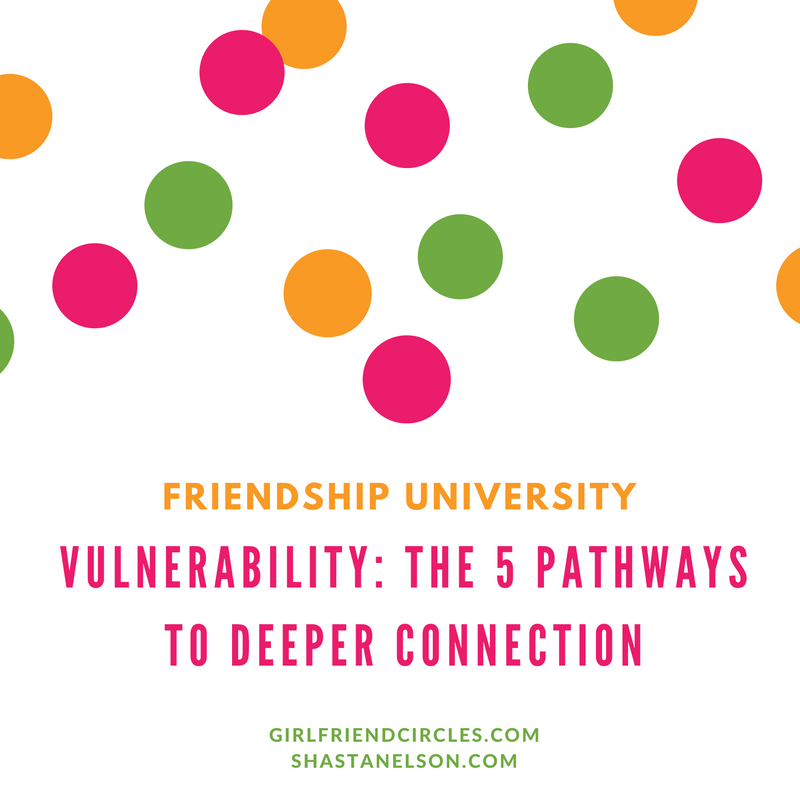 resources, such as a personal application worksheet and monthly challenge) for all members of GirlFriendCircles.com this month so feel free to join us (for only $20!) and access the class with your membership! In a month where we can feel inundated with busy-ness and people, it's ever more important to practice adding Meaningful Moments to our interactions!
resources, such as a personal application worksheet and monthly challenge) for all members of GirlFriendCircles.com this month so feel free to join us (for only $20!) and access the class with your membership! In a month where we can feel inundated with busy-ness and people, it's ever more important to practice adding Meaningful Moments to our interactions!


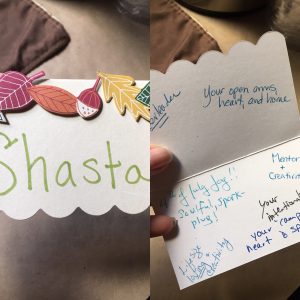
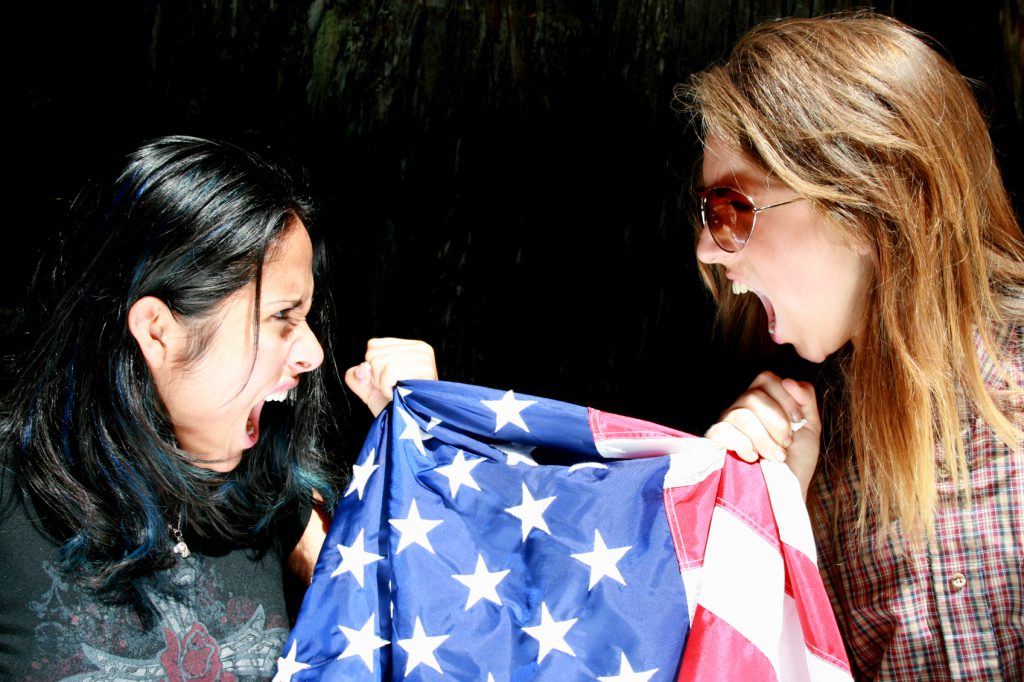
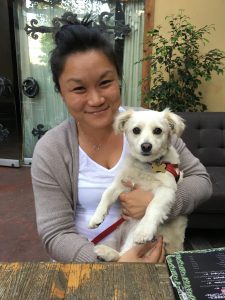
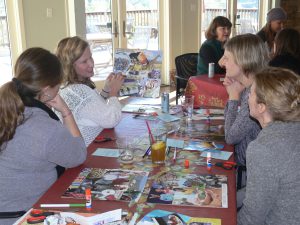
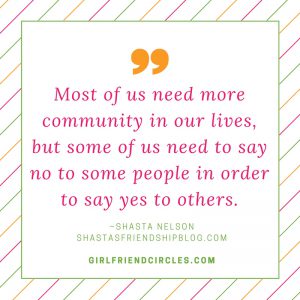 need to say no to some people in order to say yes to others.
need to say no to some people in order to say yes to others.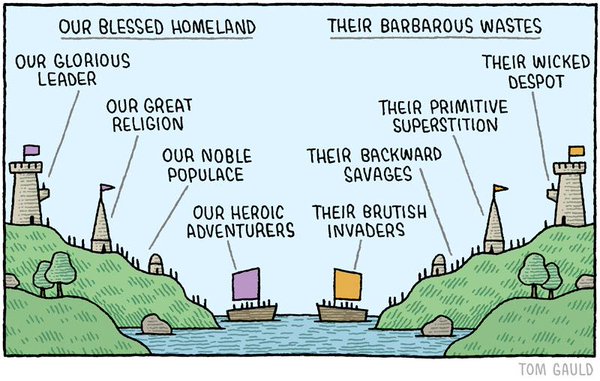

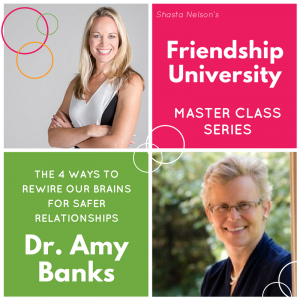 privilege to interview the foremost authority on the combined fields of neurobiology and relationships. Dr. Amy Banks, the author of
privilege to interview the foremost authority on the combined fields of neurobiology and relationships. Dr. Amy Banks, the author of 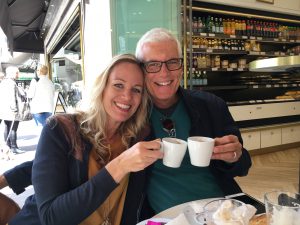
 for
for 
 recover, but water gets boring after a while! For $14 send her a fun new way to get her fluids down! And for another $8 you can add a recipe book filled with
recover, but water gets boring after a while! For $14 send her a fun new way to get her fluids down! And for another $8 you can add a recipe book filled with 
 Pick out a fun coloring book to go with it and now they have something fun and creative to do while they heal. (This one is
Pick out a fun coloring book to go with it and now they have something fun and creative to do while they heal. (This one is 
 I am someone who loves to wear something that reminds me I am loved and that inspires me as I keep on the journey. This $34 bracelet says
I am someone who loves to wear something that reminds me I am loved and that inspires me as I keep on the journey. This $34 bracelet says  tired of sleeping... an audio book may be the perfect distraction!
tired of sleeping... an audio book may be the perfect distraction!
 faster but it certainly may help her feel more whole! My hair gets so greasy that I'd need a can by my bed! Here's my
faster but it certainly may help her feel more whole! My hair gets so greasy that I'd need a can by my bed! Here's my 
